Montessori Curriculum
Children can study Practical Life, Sensorial, Mathematics, Language, and Culture as part of the Montessori Curriculum. A group of Montessori items that teach a specific major knowledge topic or ability make up each learning area at our childcare centre. Children grasp the essential competencies in each subject area and gain a fundamental comprehension of each material via repetition and practise.
Note: Full day cycle 7:30 am to 6 pm and montessori cycle 9:00 am to 3:30 pm.
How Does the Montessori Curriculum Work?
At Gatehouse Montessori, children engage in a curriculum that encourages independence, curiosity, and a lifelong love of learning. Rooted in the philosophy of Dr. Maria Montessori, our program nurtures the whole child academically, socially, emotionally, and physically within an environment carefully prepared to meet their developmental needs.
Here are some key aspects of how the Montessori curriculum works
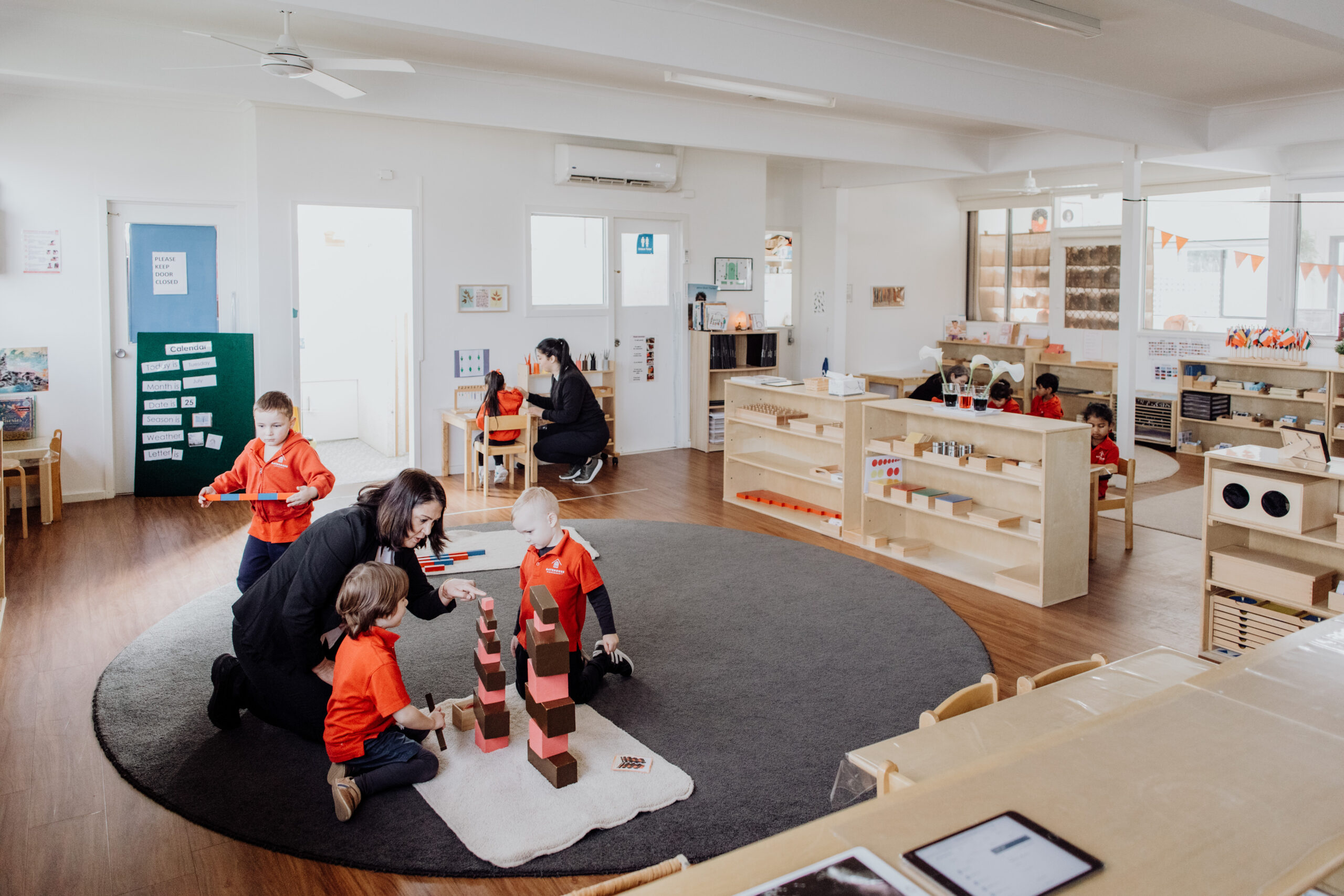
Prepared Environment
Classrooms are intentionally designed with age-appropriate materials and furniture, inviting children to explore independently while feeling supported and secure.
Mixed-Age Classes
Children learn in mixed-age classrooms, fostering collaboration, leadership, and peer-to-peer learning. Younger children benefit from the example of older peers, while older children reinforce their knowledge through mentoring.
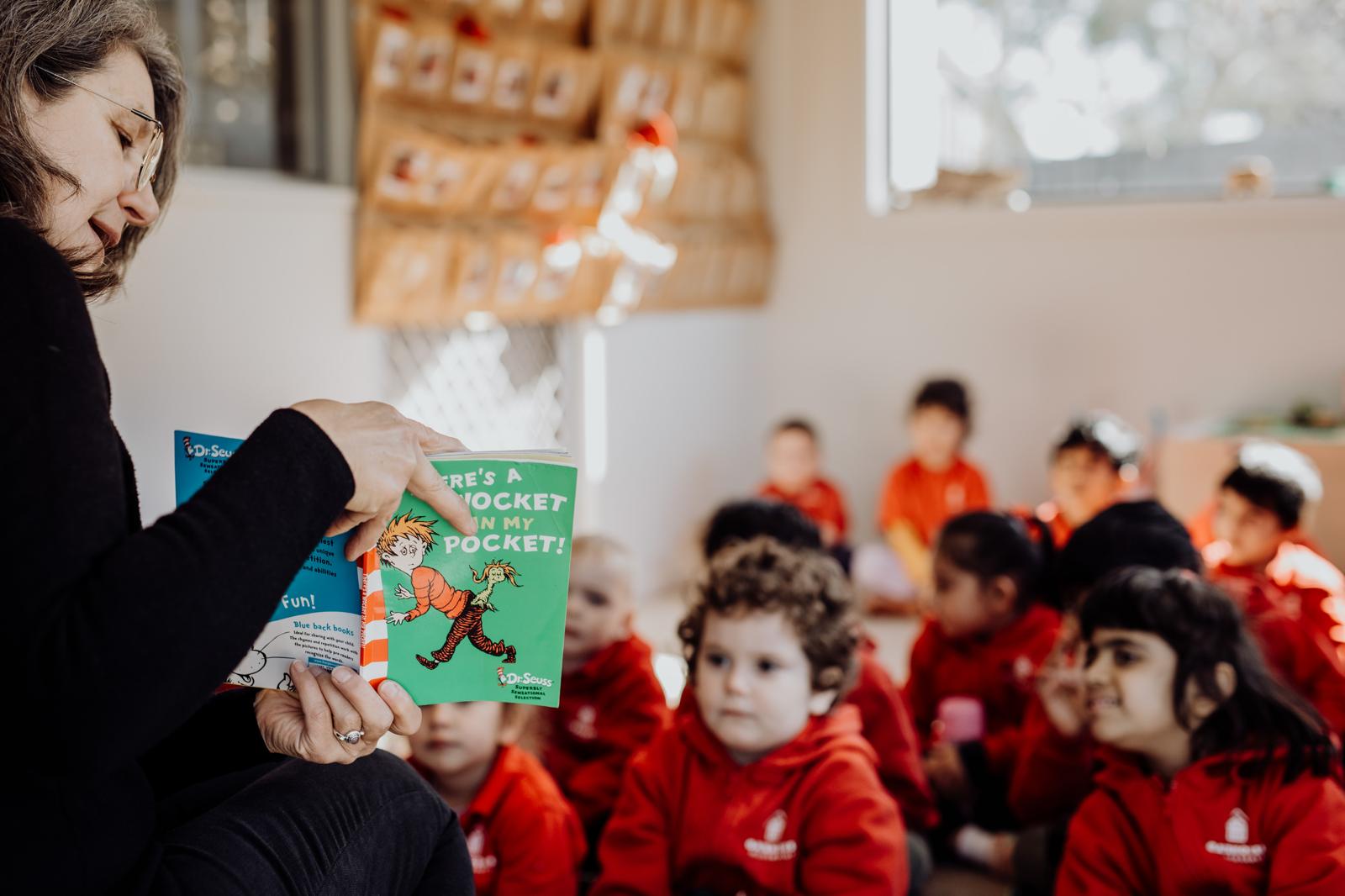
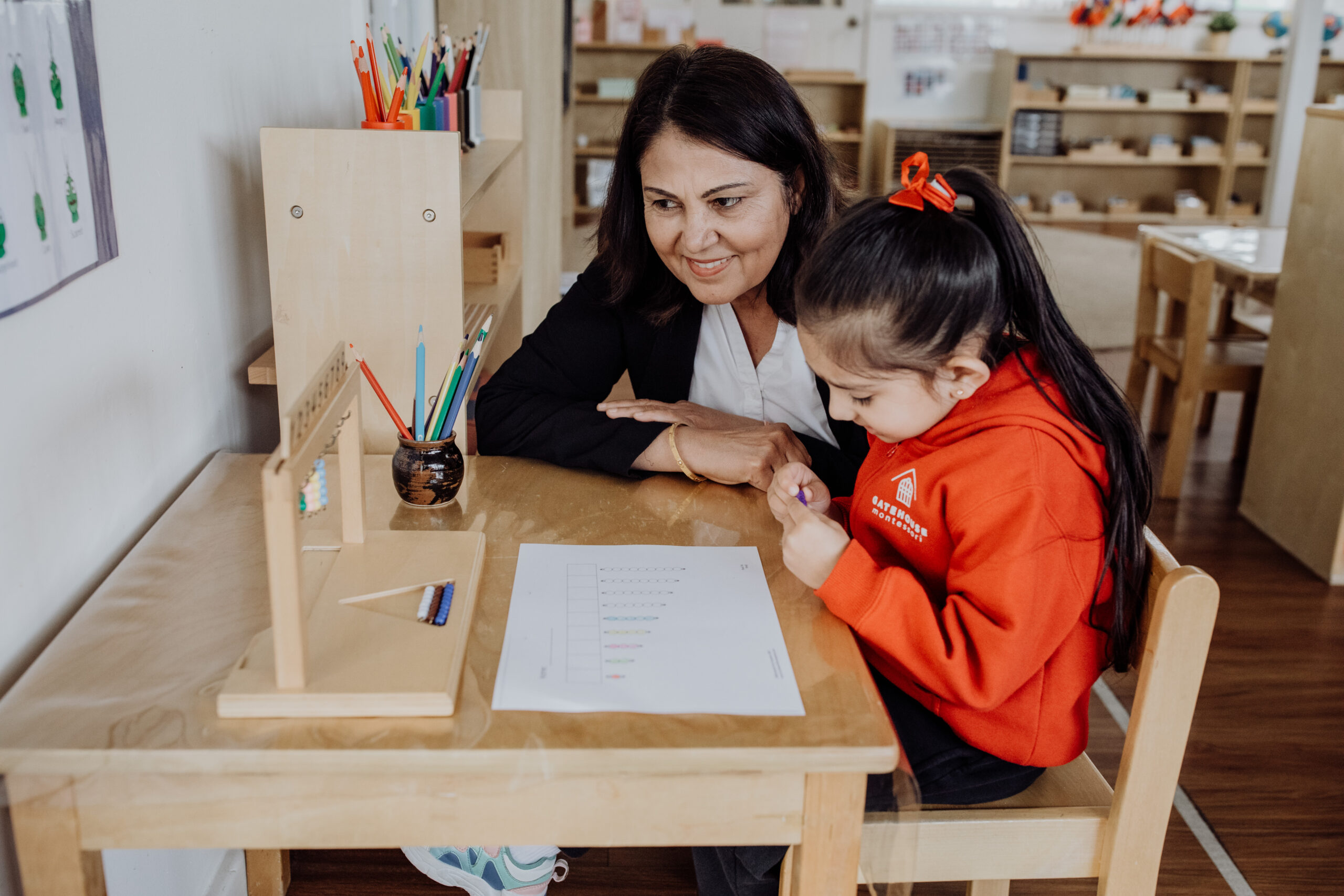
Individualised Learning
Each child progresses at their own pace, choosing activities that align with their interests and developmental stage. Educators act as guides, carefully observing and supporting individual growth.
Hands-on Materials
Specially designed Montessori materials are self-correcting and engaging, encouraging problem-solving, independence, and confidence through active learning.
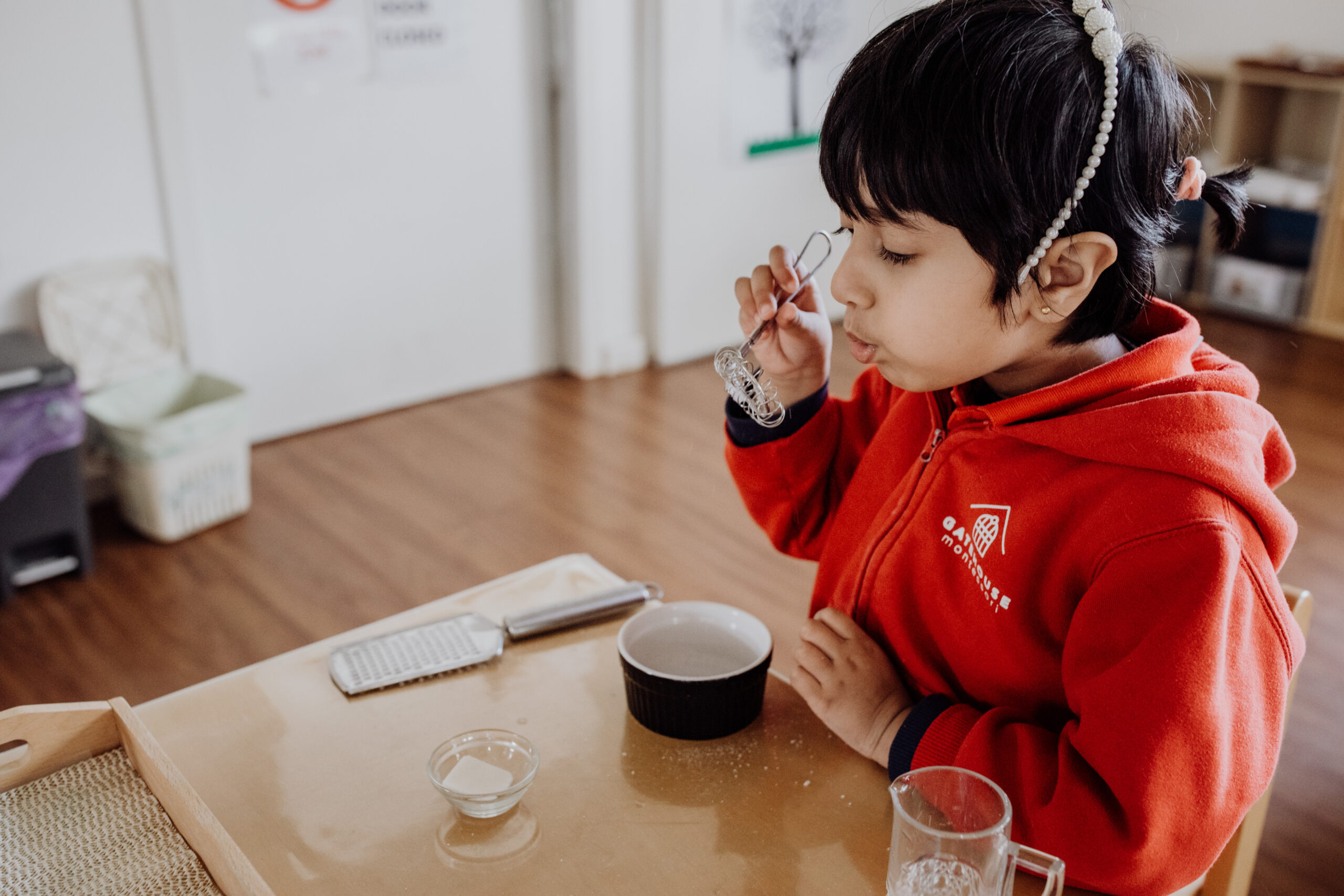
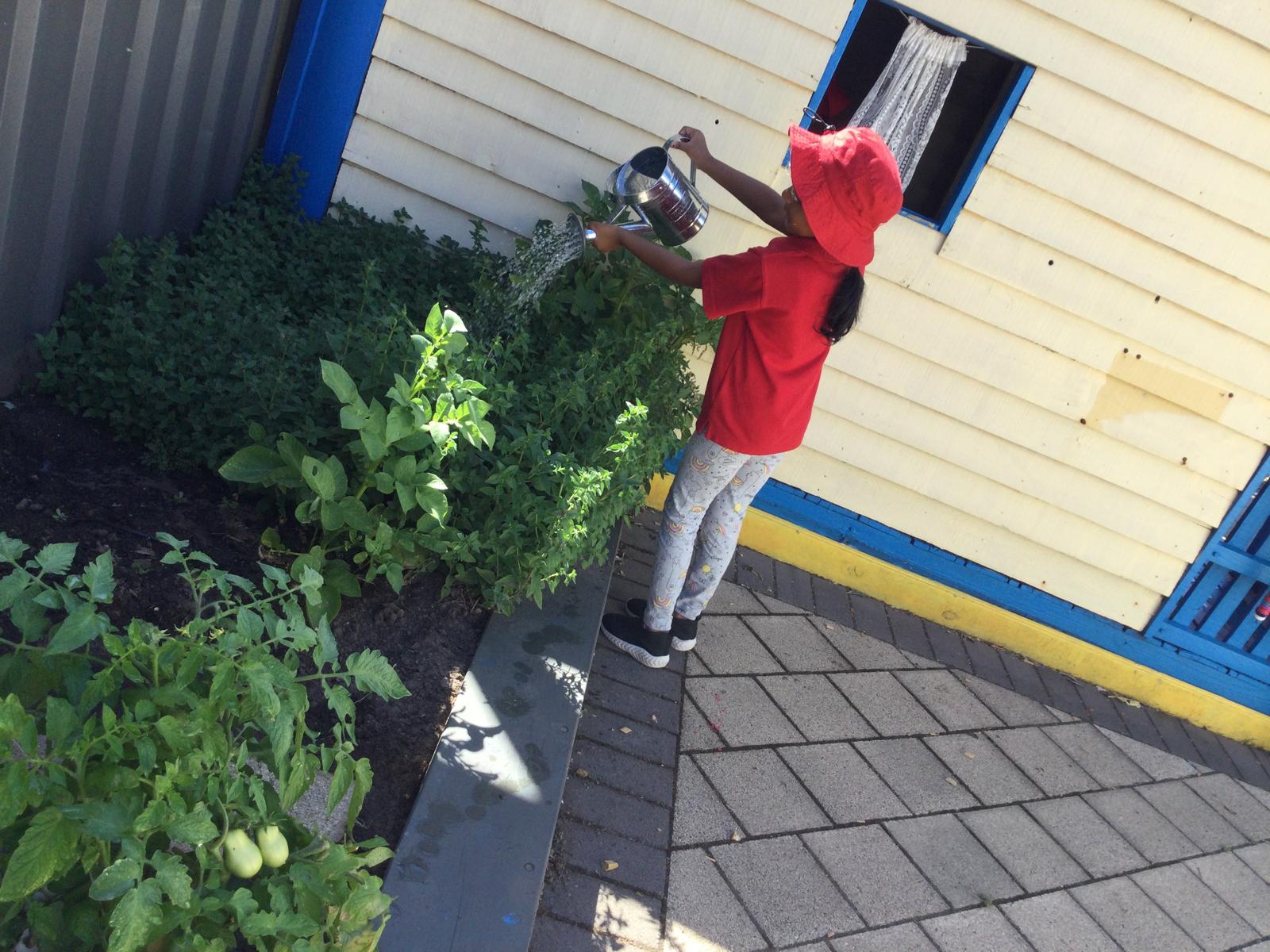
Freedom Within Limits
Children are encouraged to make choices within clear boundaries, learning self-discipline, respect for others, and responsibility.
Practical Life Skills
Montessori education places a strong emphasis on practical life skills. Children are encouraged to engage in everyday tasks such as pouring, cleaning, and dressing, which promotes independence and self-care.
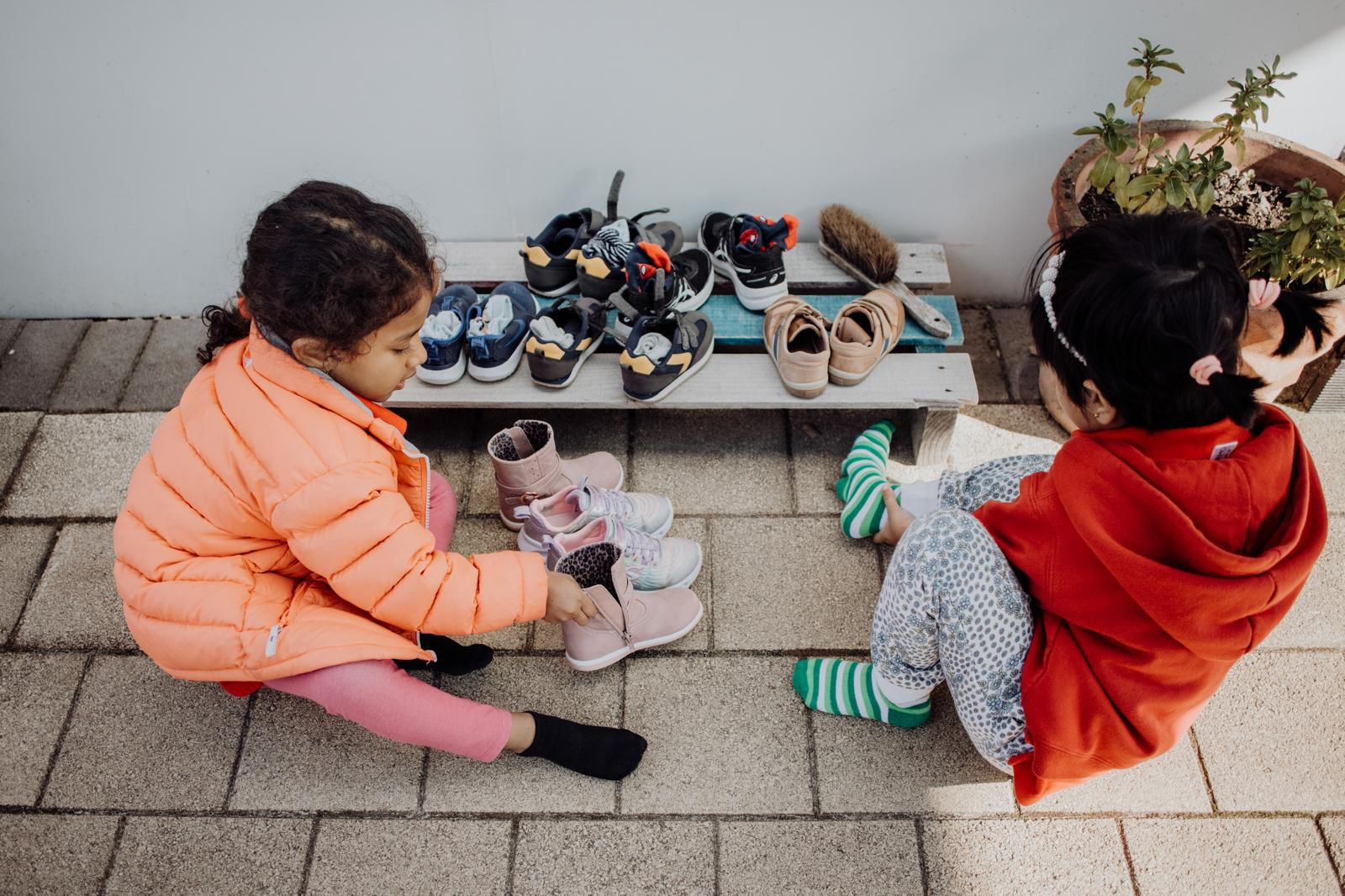
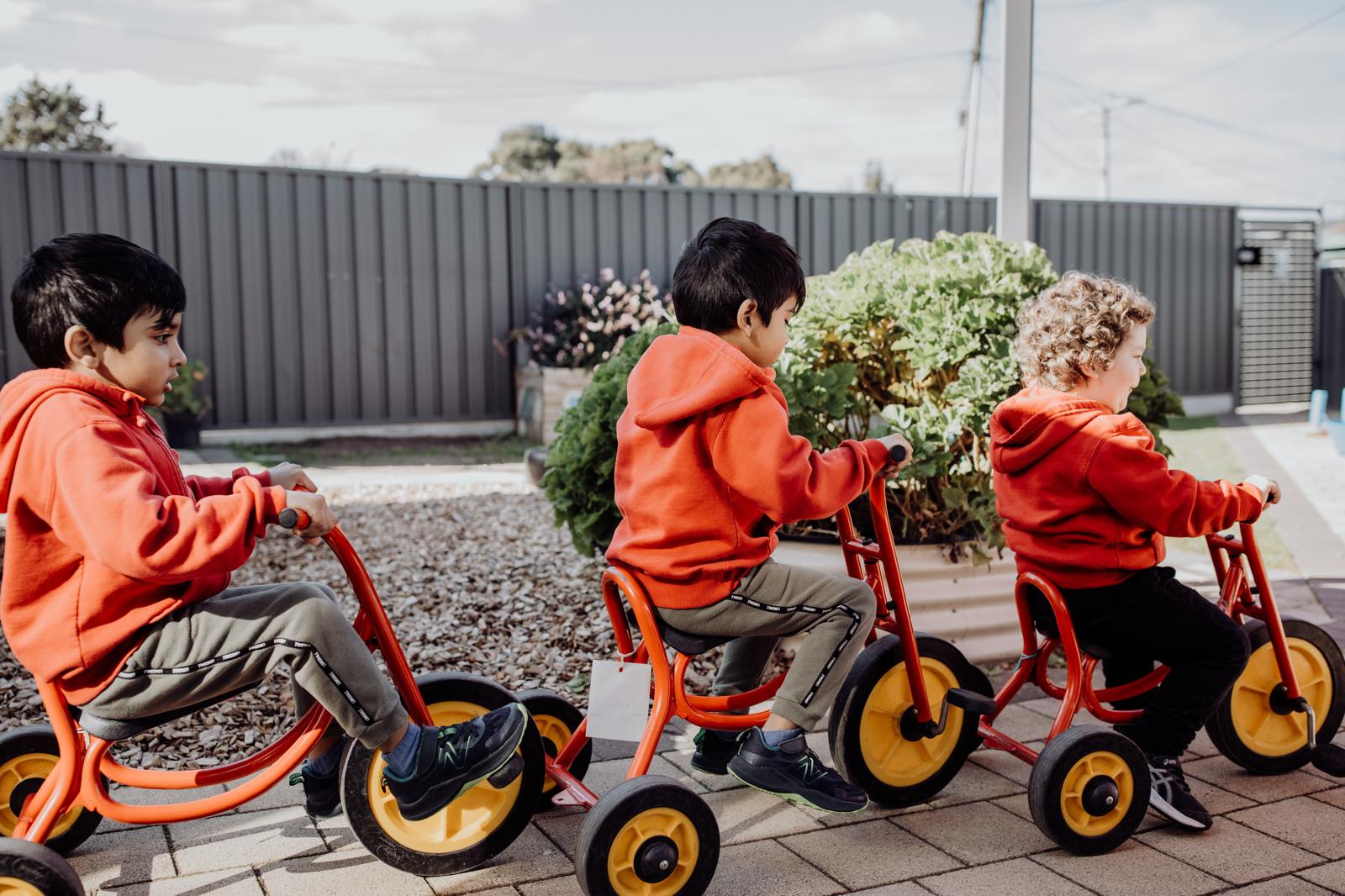
Sensorial Exploration
Montessori materials are designed to stimulate the senses and help children understand abstract concepts through concrete experiences. Activities focusing on touch, taste, smell, sight, and hearing are incorporated into the curriculum.
Montessori Educators
Our educators are trained in the Montessori philosophy and child development. Their role is to guide rather than instruct, ensuring each child’s natural curiosity is nurtured with care and respect.




